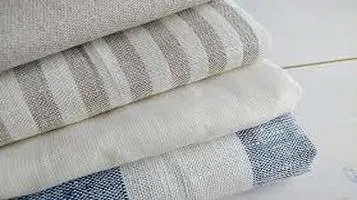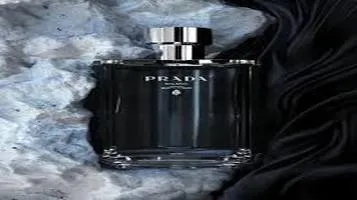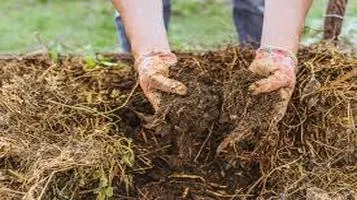Bamboo Fabric Items: An Eco-Friendly and Versatile Choice
Bamboo fabric items are eco-friendly and sustainable products made from the fibers of the bamboo plant. Known for their softness and breathability, these items offer a comfortable and luxurious feel, making them ideal for clothing, bedding, and towels. Bamboo fabric is naturally hypoallergenic and antimicrobial, which makes it perfect for sensitive skin and helps reduce odors. Additionally, the fabric is highly absorbent and moisture-wicking, keeping you dry and comfortable. Bamboo grows rapidly without the need for pesticides or fertilizers, making it an environmentally conscious choice. Its durability ensures that bamboo fabric items maintain their quality even after multiple washes. Overall, bamboo fabric items combine comfort, functionality, and sustainability, making them a popular choice for environmentally aware consumers.

In today's world, where sustainability and eco-friendliness are becoming increasingly important, bamboo fabric items have emerged as a popular choice among environmentally conscious consumers. Bamboo, often touted as a "miracle plant," has been used in various products, ranging from clothing and bedding to towels and even reusable kitchen items. This review delves into the numerous benefits of bamboo fabric items, highlighting their environmental impact, comfort, durability, and versatility.
Environmental Impact
One of the most compelling reasons to choose bamboo fabric items is their positive environmental impact. Bamboo is a highly sustainable resource. Unlike traditional cotton, bamboo grows incredibly fast—up to 35 inches per day—without the need for pesticides or fertilizers. It also requires significantly less water. These characteristics make bamboo an excellent choice for reducing the ecological footprint associated with textile production.
Moreover, bamboo plants absorb more carbon dioxide and release more oxygen than trees, contributing to cleaner air. When it comes to harvesting, bamboo can be cut without killing the plant, allowing it to regrow and be harvested multiple times. This regenerative quality further enhances its sustainability credentials.
Comfort
Bamboo fabric is renowned for its exceptional comfort. The fibers are naturally soft, often compared to the feel of silk or cashmere. This softness makes bamboo fabric items particularly appealing for clothing and bedding, where comfort is paramount. Bamboo fabric is also hypoallergenic, making it an ideal choice for individuals with sensitive skin or allergies. The smooth fibers reduce the likelihood of skin irritation, which is a common issue with rougher fabrics.
Another noteworthy feature of bamboo fabric is its breathability. The material allows air to circulate freely, helping to regulate body temperature. This means bamboo clothing can keep you cool in the summer and warm in the winter, making it a versatile addition to any wardrobe. Additionally, bamboo fabric is moisture-wicking, meaning it can absorb and evaporate sweat quickly. This property makes bamboo items particularly suitable for activewear and socks, as they help keep the wearer dry and comfortable.
Durability
Durability is another area where bamboo fabric items excel. Despite their soft texture, bamboo fibers are incredibly strong. This strength translates into long-lasting products that can withstand regular use and washing. Bamboo fabric is also less likely to pill compared to other materials, maintaining its smooth appearance over time.
However, it’s worth noting that the durability of bamboo fabric can vary depending on the manufacturing process. The two primary methods of producing bamboo fabric are mechanical and chemical processing. Mechanical processing (similar to how linen is made from flax) is more environmentally friendly but less common and more expensive. Chemical processing, while more prevalent, involves the use of solvents that can be harmful to the environment if not managed properly. Therefore, consumers should look for products labeled as "bamboo linen" or "mechanically processed" to ensure they are getting the most eco-friendly option.
Versatility
Bamboo fabric's versatility is another reason for its growing popularity. The material can be used to create a wide range of items, each benefiting from bamboo's unique properties. For instance:
- Clothing: From T-shirts and underwear to dresses and activewear, bamboo fabric is suitable for various types of clothing. Its softness, breathability, and moisture-wicking properties make it comfortable for everyday wear and physical activities.
- Bedding: Bamboo sheets, pillowcases, and duvet covers are increasingly popular due to their luxurious feel and temperature-regulating abilities. These items can provide a more comfortable and restful sleep, especially for those who tend to overheat at night.
- Towels: Bamboo towels are highly absorbent and quick-drying, making them a practical choice for both the bathroom and the beach. Their natural antibacterial properties also mean they are less likely to develop unpleasant odors.
- Reusable Items: Bamboo fabric is also used to make reusable kitchen items such as dishcloths and napkins. These products offer a sustainable alternative to single-use paper products, reducing waste and the environmental impact.
Conclusion
In conclusion, bamboo fabric items offer a myriad of benefits that make them an excellent choice for eco-conscious consumers. Their positive environmental impact, superior comfort, impressive durability, and remarkable versatility set them apart from traditional fabrics. While the initial cost of bamboo products may be higher than their conventional counterparts, the long-term benefits—both for the user and the planet—make them a worthwhile investment. As awareness of sustainability continues to grow, bamboo fabric items are likely to become an even more integral part of our daily lives, helping us to live more comfortably and responsibly.






